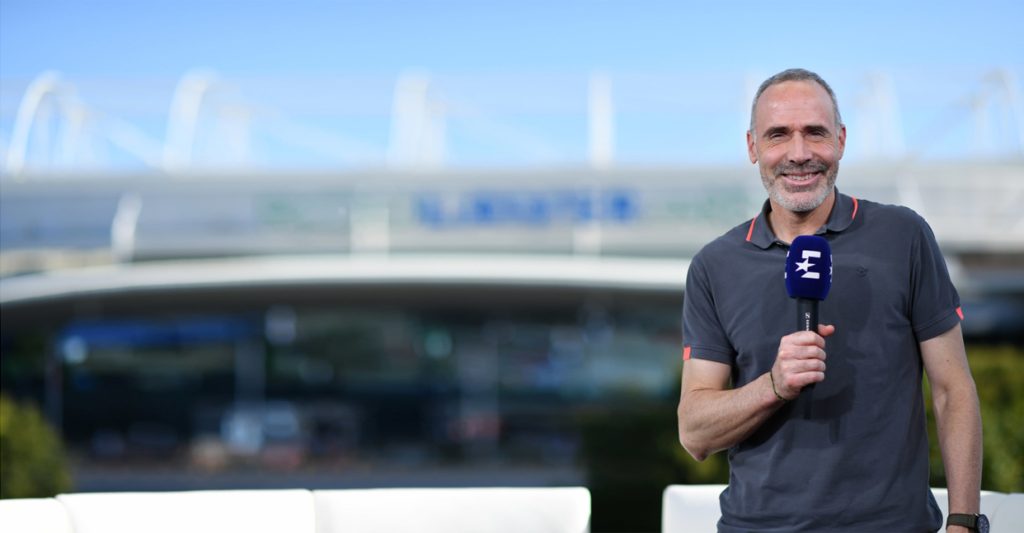Novak Djokovic at 36 – currently gearing up for a tilt at the ATP year-end Finals – is arguably notching the best numbers of his career as he won three Grand Slams and reached the final of the one he couldn’t win in a stellar 2023 tennis calendar. Alex Corretja believes the resurgence of the legendary Serbian dates back to 2022, when he was disgracefully deported from Melbourne during a Covid-struck Australian Open.
The Spaniard believes the deportation saga proved to be a seminal moment for Djokovic and gave him the soul-searching moments before recording a marvelous return to the tour.
It was one of the most controversial crossover tennis stories of the 2022 and shocked the whole tennis fraternity and fans alike. According to the former World No. 2, the whole fiasco in a way helped Djokovic to go through a phase introspection and come back to take his on-court performances and off-court demeanor to new heights.
The Serbian took a nightmare start to the 2022 campaign after he was detained by the Australian border patrol force as soon as he entered Melbourne because of his non-vaccinated status. Consequently, the authorities cancelled his visa and the tennis star didn’t have any choice but to challenge the executive’s decision in court.
During that time Djokovic was contained in an immigration detention facility. He won the court case and his visa was reinstated after the court order but his visa was revoked by the government for the second time after he failed to win a second court case and was expelled from the country.
The 24-time Grand Slam champion later on admitted in interviews that the controversy took a toll on him and he felt hurt by the fact that several of his peers were not on his side during the controversy. Djokovic has fed on the negative energy to take his tennis to a new level since the Melbourne furor and has sealed four of six majors that he played after the 2022 events. He now holds record 24 major titles and also most weeks spent as World No. 1 – 398 weeks.
Corretja suggests that the Australian Open debacle charge the inside beast in the 36-year-old.

“I think what happened to him in Australia led him to a long introspection,” the two-time French Open finalist told Eurosport.
“He dove within himself and understood who he was. And he just got deep inside his soul, his body, his mind. And from then on, he’s understood and dealt with everything better.
“He knows the people from outside better, what they think about him. Even the fellow tennis players, which ones were a little more on his side, which ones were not.
“So I think it’s like it woke up a beast inside him that he had, and he’s now controlling all his emotions much better than before. And I see now that even players or the crowd appreciate him even more than before because he’s authentic, he’s natural, he’s himself, and he’s not trying to go with a mass, saying things to make everyone happy.
“He’s just gone with his principles. You might like them or you might not, but definitely he’s someone who is going to fight for whatever he feels he needs to go for.
“And he does that with the association that he’s creating for the players [PTPA], the way he’s acting on court.
“So I think we are seeing probably the best version of Novak Djokovic overall. Of course, maybe he’s a little bit different than five to ten years ago. But overall, I think we’ve seen probably the best performance of Novak in the whole history.”
Corretja also explained how he found equilibrium in his dealings on and off the court and added that the 36-year-old didn’t care about how other perceive him.
“I think mentally he found a balance that he is dealing very well with all the situations,” Corretja said.
“He’s even enjoying when the crowd is against him because he doesn’t care anymore. He’s like, ‘you’re going against me, you don’t know who you play against’. And I think this is something that shows maturity.
“Maybe before he would get upset with the crowd, now he takes it as a positive and even if sometimes maybe he doesn’t feel well and he shouts, but he doesn’t lose his way.
“It’s just more that he needs to take his demons out of his body and his soul and his mind, and he does it because of that, but not because he’s losing the momentum of the match.
“He needs to do that in order to find a way again, to be on the right path to win matches.”